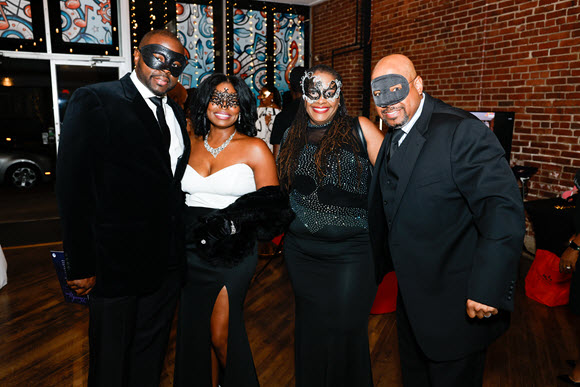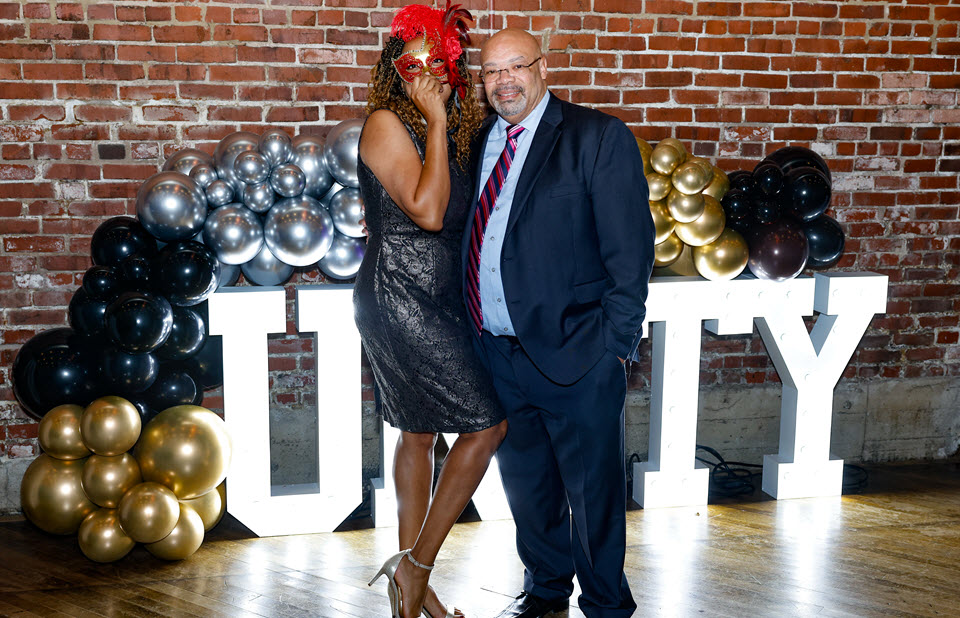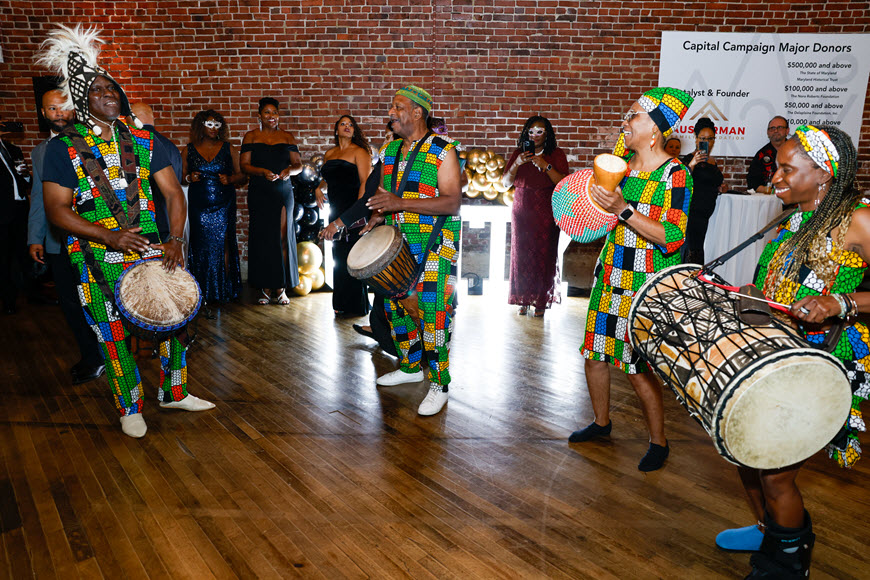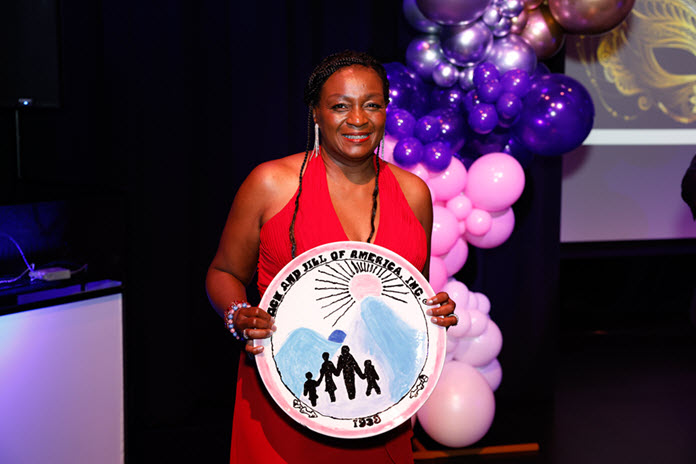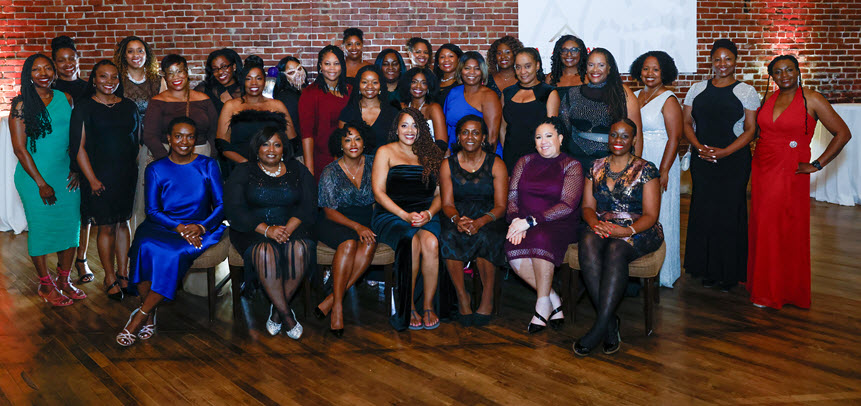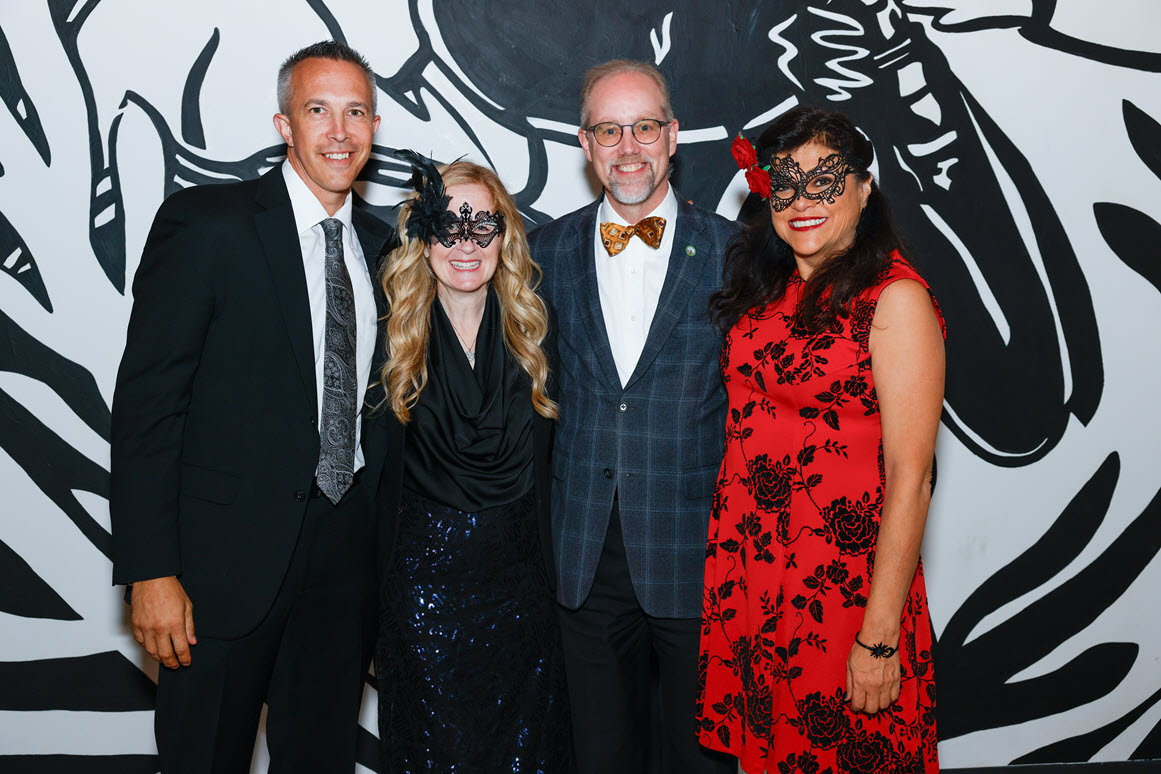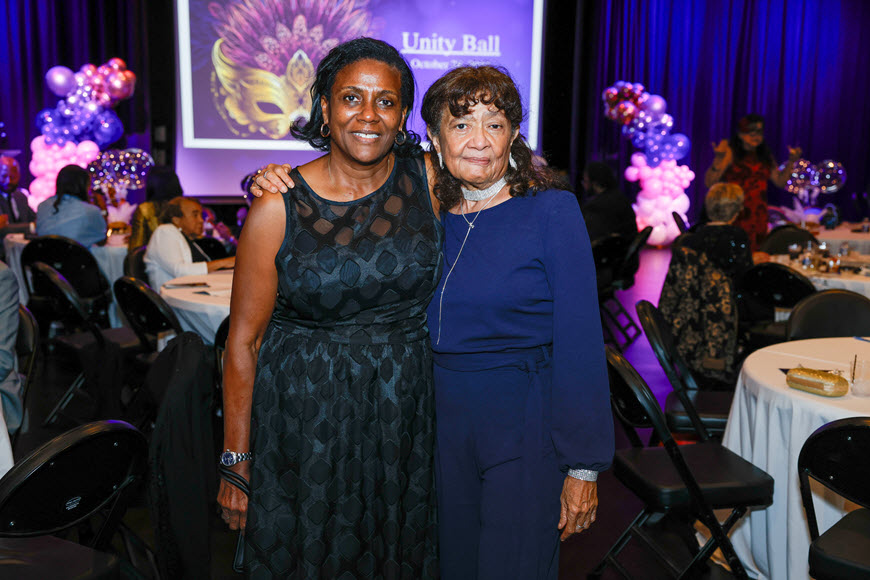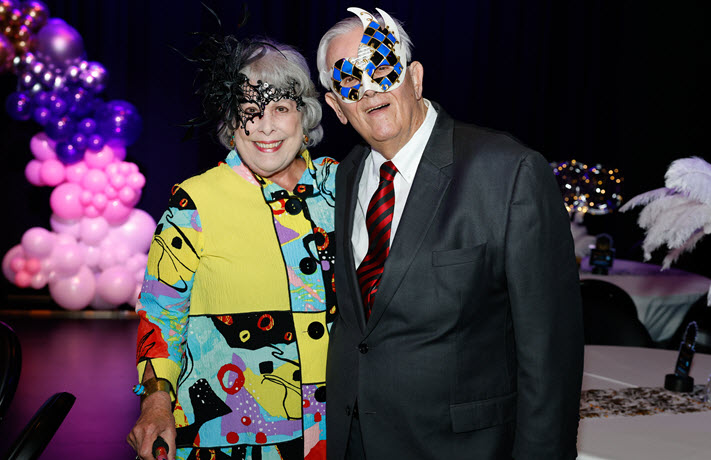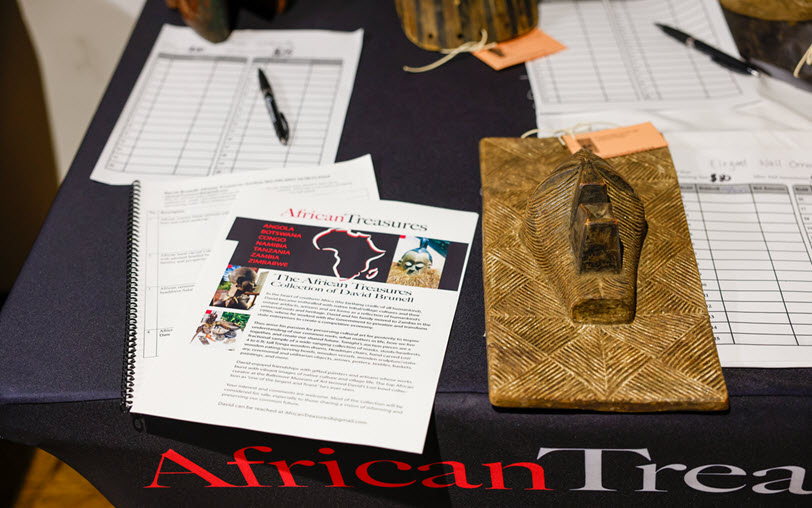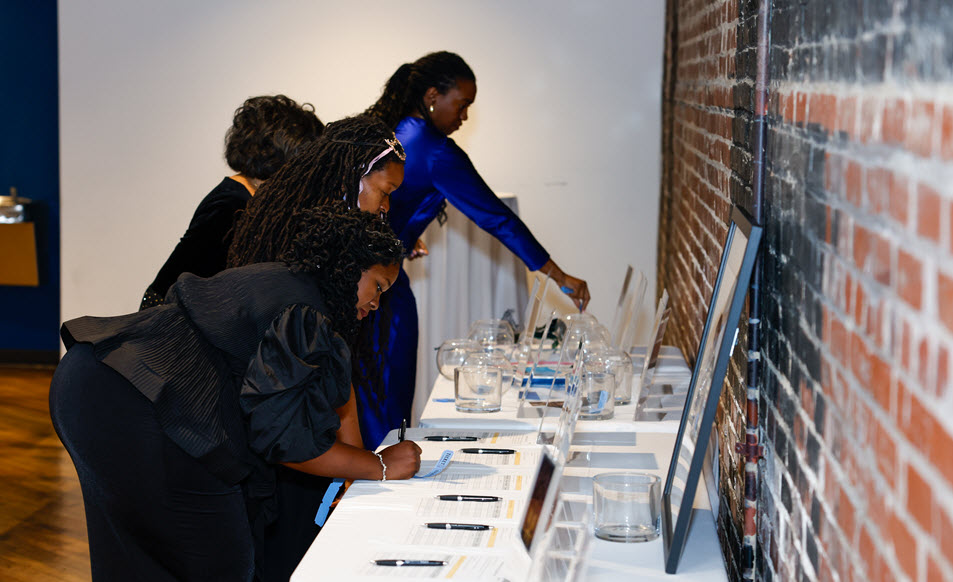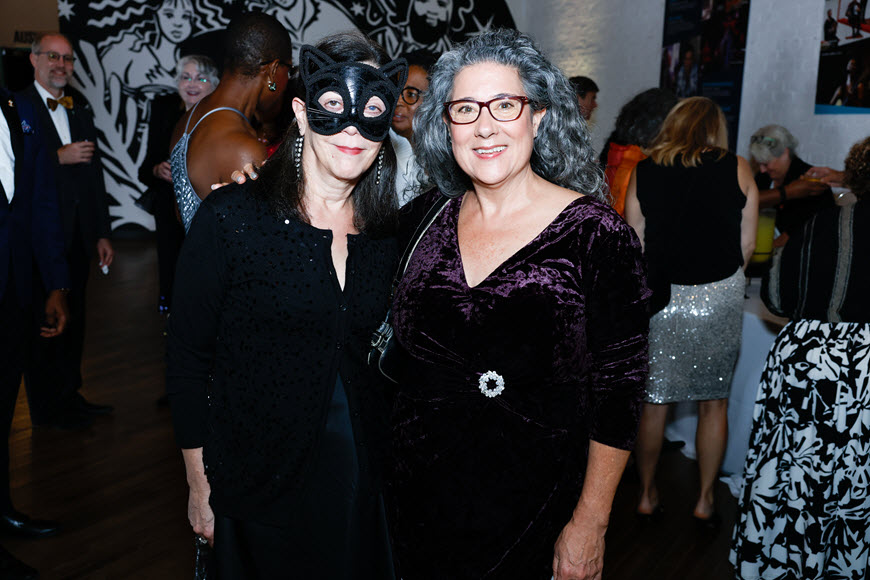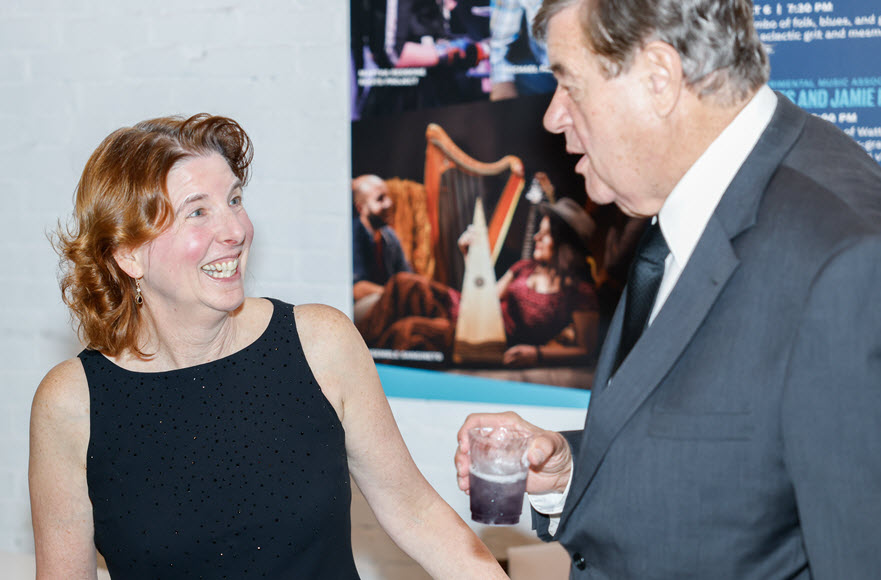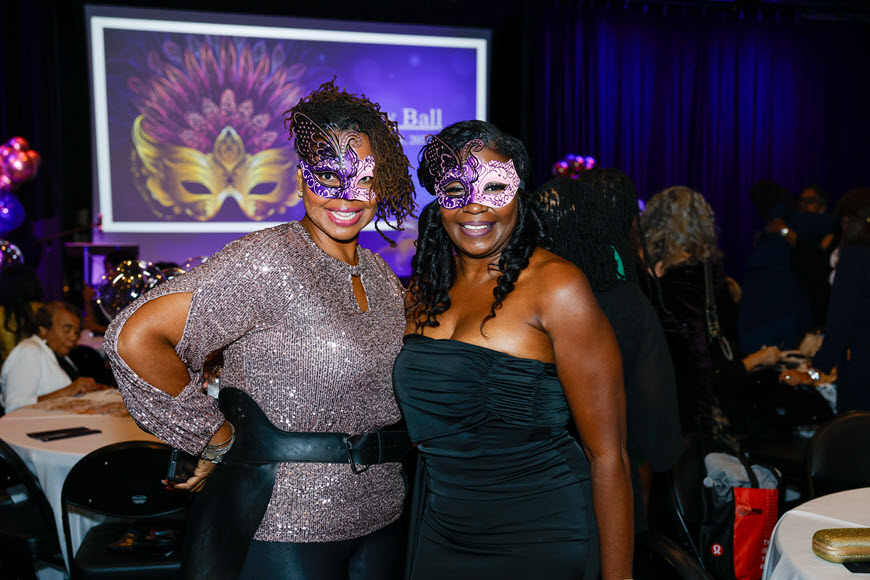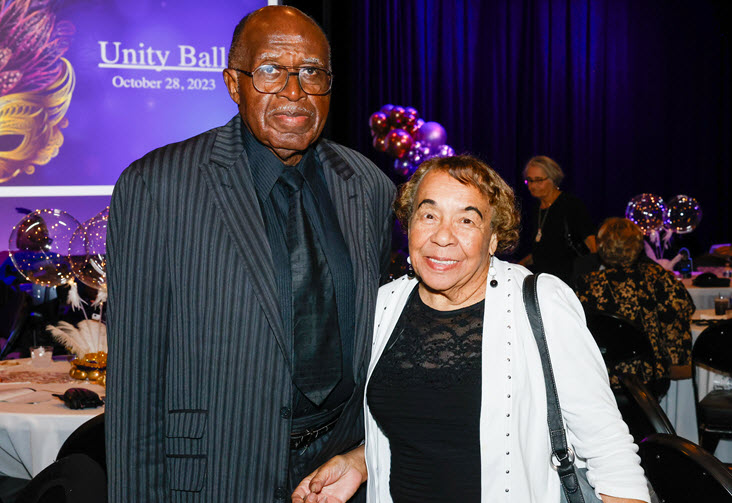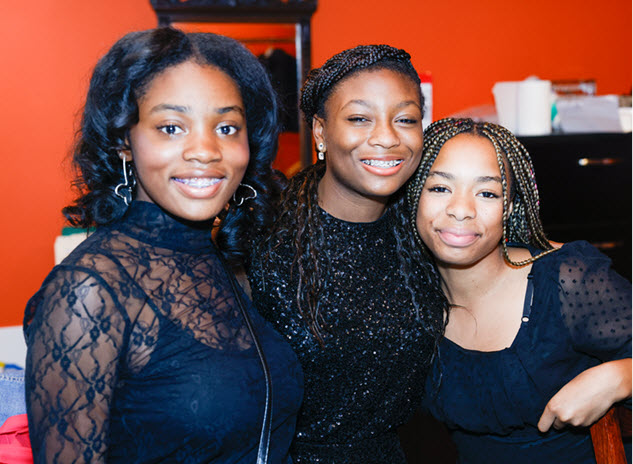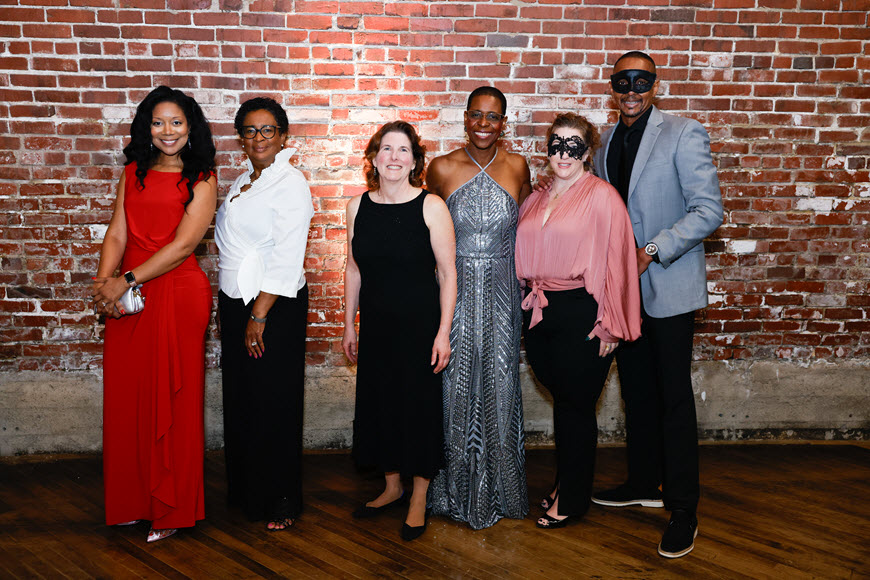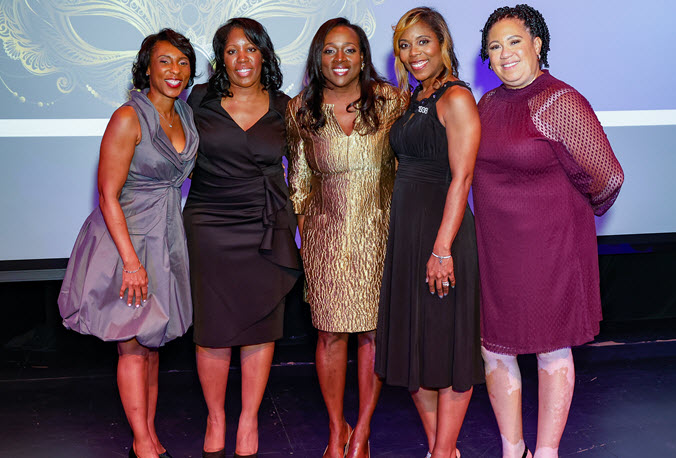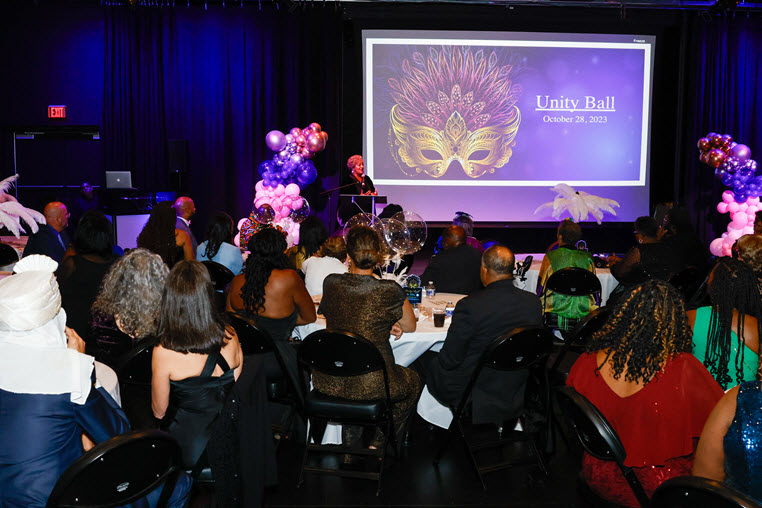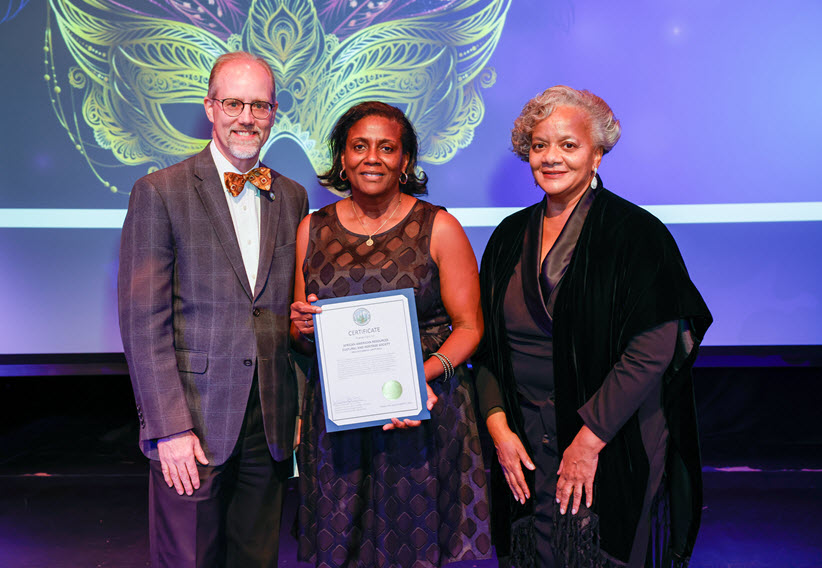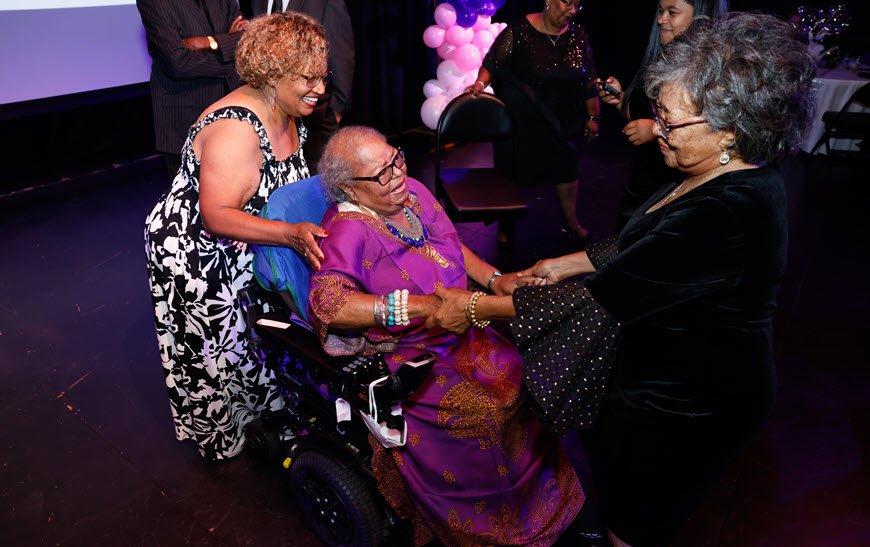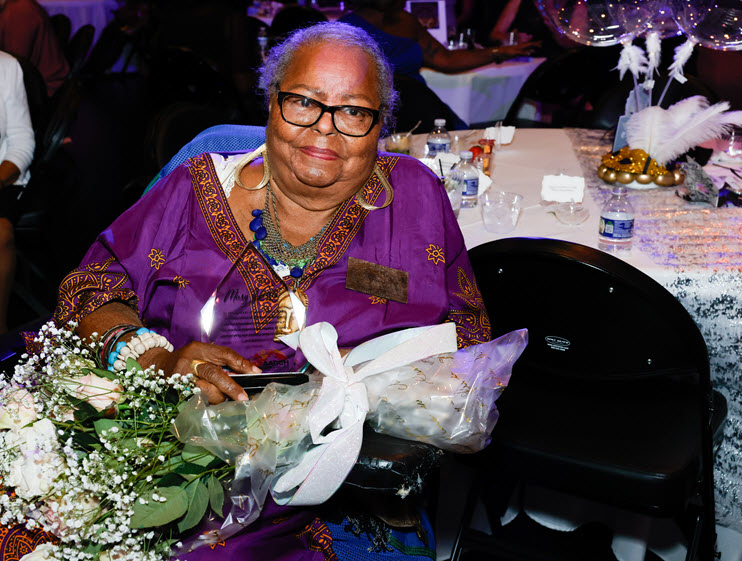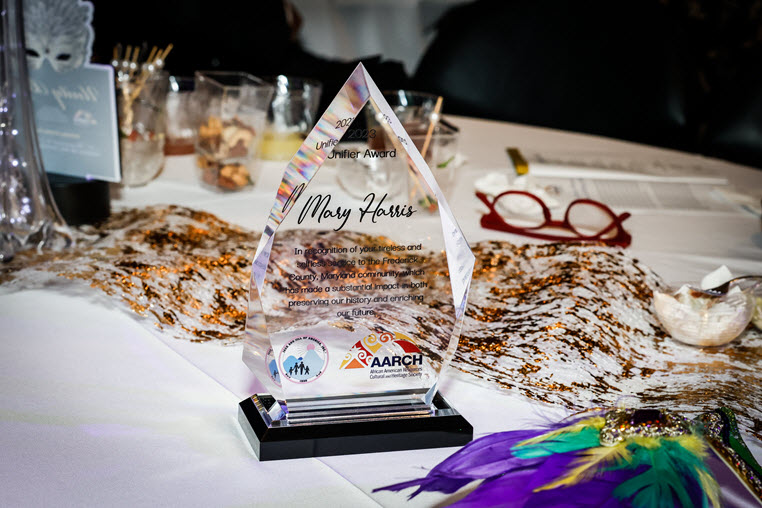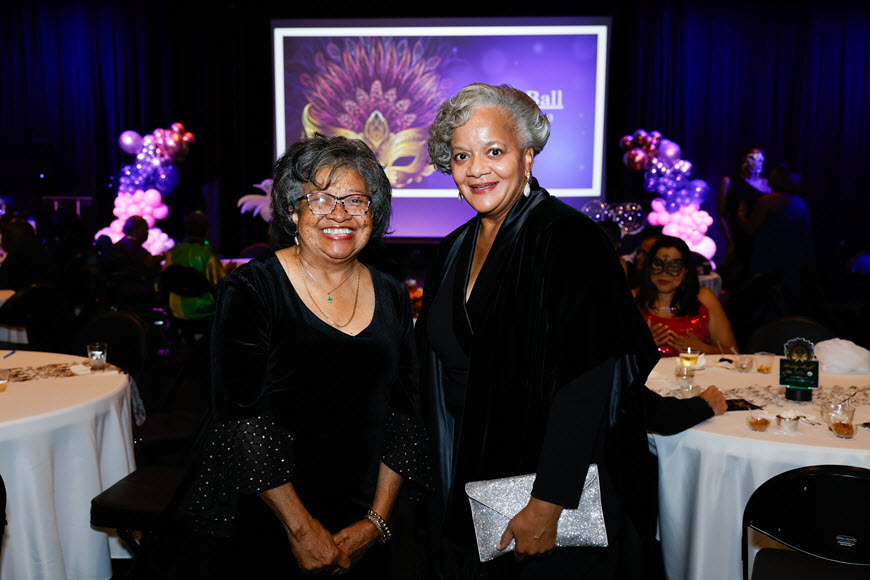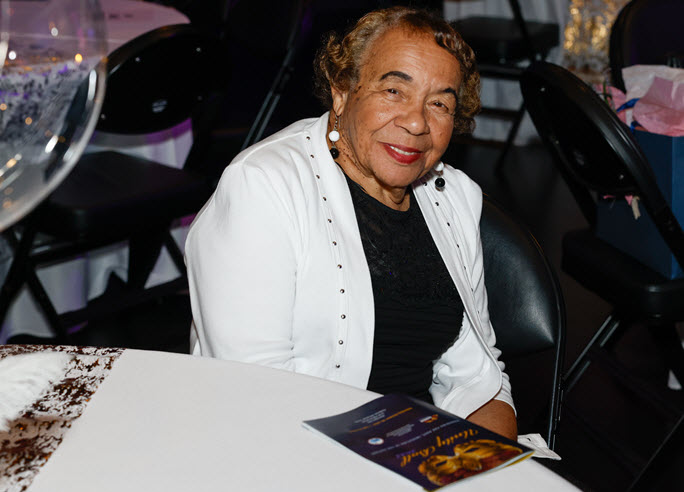Author: Cathy Canning
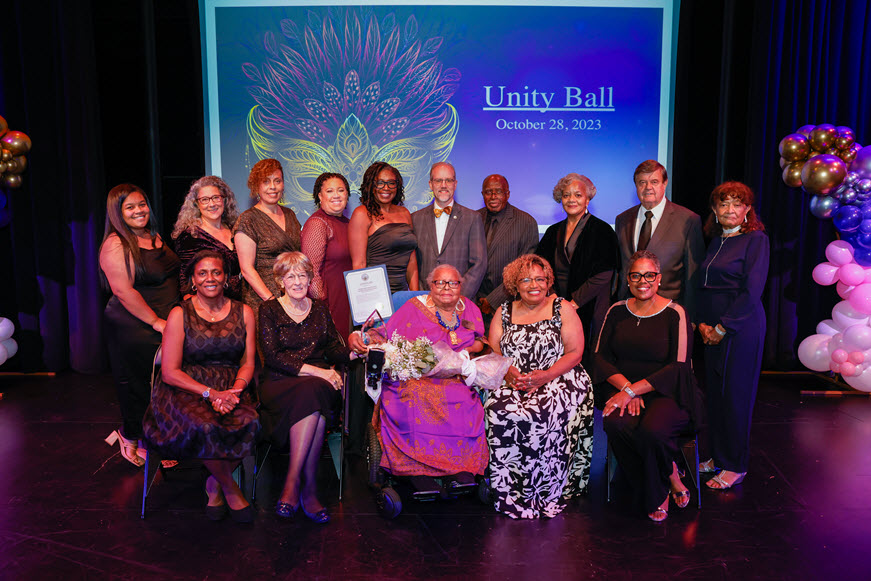
Unity Ball Turns Mission Into Gala Event
November 11, 2023AARCH Society and the Jack and Jill of America Foundation Western Maryland Chapter came together in Frederick, Md., on October 28 for a mission-inspired gala event. See photos by Epic Media Photography below.
The inaugural Unity Ball 2023 raised funds for AARCH Society’s African American Heritage Center and funds to support students of HCBUs who have financial needs that are not filled by scholarships.
Close to 200 guests mingled, dined on delicious food from Southern Style Bistro, and danced at the New Spire Arts Center, many wearing Mardi Gras style masks in keeping with the ball’s theme. Attendees included Frederick Mayor Michael O’Connor and members of the AARCH Society and Jack and Jill of America.
Guests bid on silent auction items and a collection of African masks were on sale. African drummers gave a live performance to lead guests into the main room where AARCH Society Executive Director Renee Gooch kicked off the event with a speech celebrating the importance of education, history, and story-telling. AARCH Society Honorary Board Member Mary Harris received a Lifetime Achievement Award for her decades of work providing research, program support, and more.
We would like to thank all those who attended and our many sponsors for their support and donations: Ausherman Family Foundation, New Spire Arts, Benefactor Events, My Red Bow, Old Farm Liquors, Southern Style Bistro, Caroline Gessert, Event Decor DMV, i-VisioNet Org, Nicole Sideris, The UPS Store #5907, Tracy Boyd, and the Rural Maryland Council.
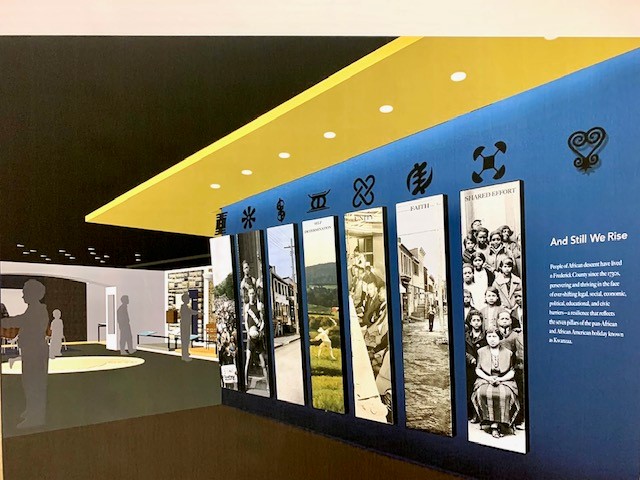
New Grants to Further Heritage Center
October 7, 2023AARCH Society is pleased to announce new grant support from Frederick County, the State of Maryland, Ausherman Family Foundation, and First Energy.
AARCH Society Grants Fall 2023
- In late August, the Rural Maryland Commission awarded $313,928 from its Rural Maryland Prosperity Investment Fund to support construction of the Heritage Center site – located at Carroll and All Saint’s Streets – furnishings and equipment, and exhibit production.
- The Frederick County Tourism Council awarded $19,396 in two separate TRIPP Grants to be used for tourism promotion and development.
- First Energy awarded $10,000 to support the many educational and community programs conducted by AARCH Society.
- Ausherman Family Foundation awarded $5,000 of administrative support for AARCH Society; this is in addition to $25,000 awarded earlier to support the establishment of our Executive Director position filled in September by Dr. Cheryl R. Gooch.
“We continue to be honored at the faith our partners are demonstrating in our work to bring Frederick County’s only African American-focused museum to life,” says AARCH Society President Protean Gibril. “We are grateful for their support in making this important work a reality in 2024.”
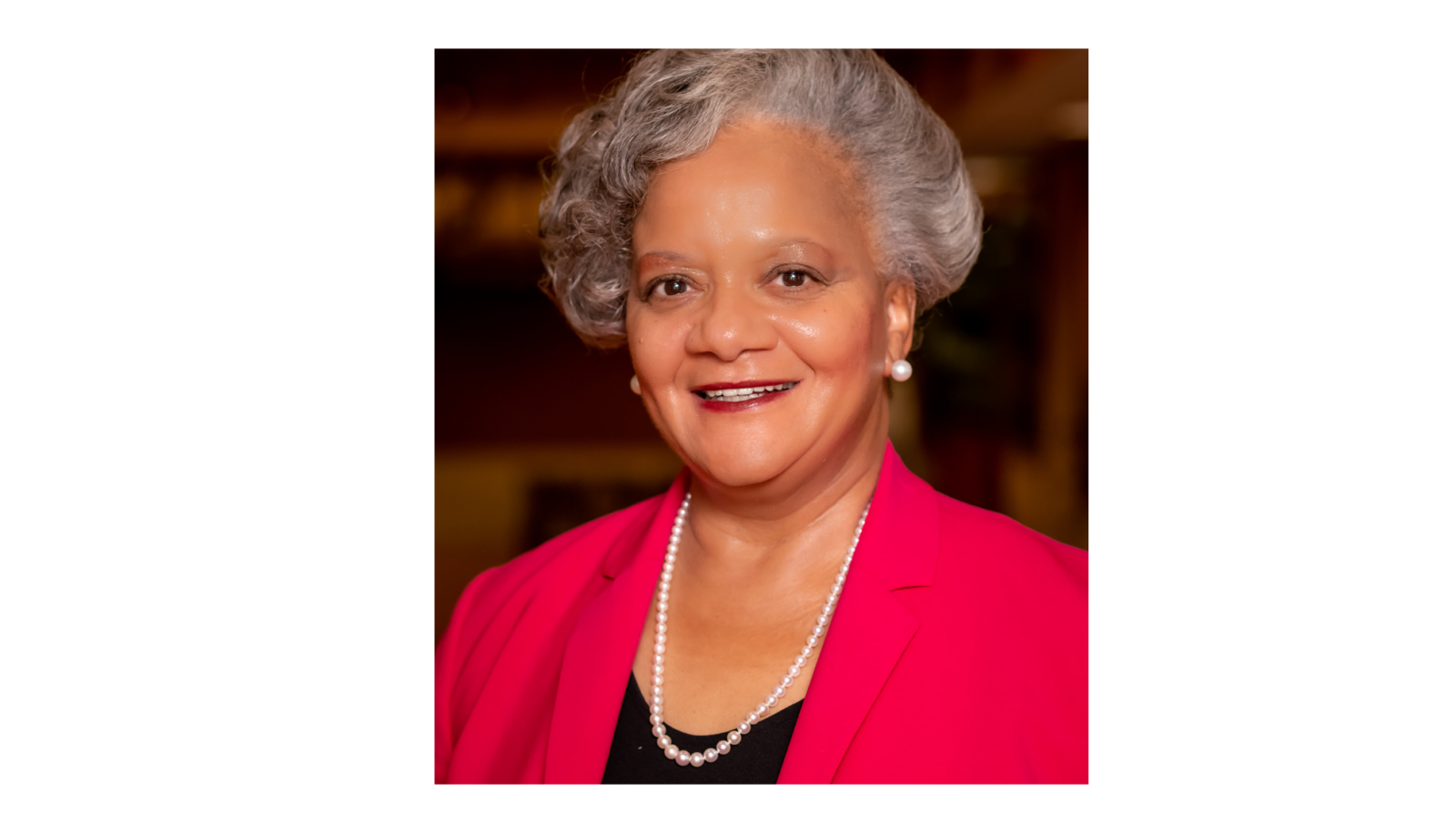
AARCH Society Hires Executive Director
September 4, 2023Dr. Cheryl R. Gooch to Lead in Newly Created Role
The African American Resources Cultural and Heritage Society is excited to announce that we have hired Cheryl Renée Gooch, Ph.D., as our first-ever Executive Director.
Dr. Gooch is responsible for leading AARCH Society’s programs and events; the successful establishment of the African American Heritage Center currently slated to open in 2024 at the corner of Carroll and All Saints Streets in Frederick’s historic district; and expanding AARCH Society’s partnerships with educational, cultural, and civic organizations.
Dr. Gooch has an extensive background in academia, most recently serving as the Vice President for Academic Affairs at SUNY Schenectady. She has authored scholarly articles and two books: “Hinsonville’s Heroes, Black Civil War Soldiers of Chester County, Pennsylvania” and “On Africa’s Lands: The Forgotten Stories of Two Lincoln-Educated Missionaries in Liberia.”
“We are thrilled to be taking this important step forward with a committed leader experienced in building collaborative community relationships and dynamic cultural programs,” says Protean Gibril, President of the AARCH Society Board of Directors.
A passionate chronicler of the African American experience, her museum work includes developing interpretive themes for the soon-to-be-opened Carter G. Woodson Home National Historic Site. She also served as lead historian and writer for the “Journey to Freedom” exhibition at the Delaware History Museum chronicling the Delawarean Black experience from 1639 to the present.
Dr. Gooch will be a featured speaker at the 2023 Unity Ball, a fundraising event at New Spire Arts on October 28, co-hosted by AARCH Society and Jack and Jill of American Western Maryland Chapter.
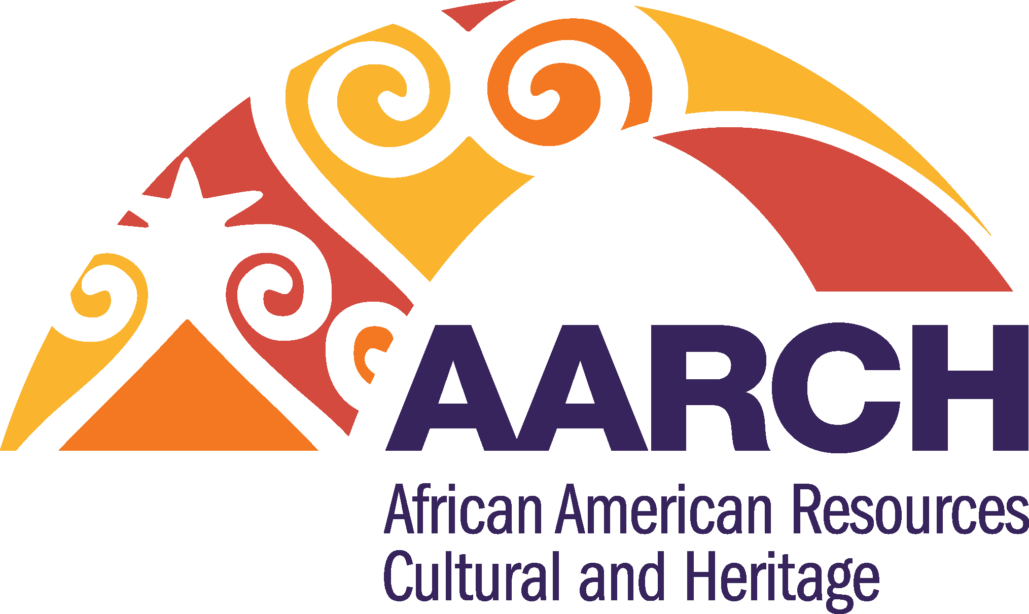
2023-24 Grants to Support Heritage Center
August 9, 2023In April, Frederick County recommended a Community Partnership Grant in the amount of $25,000 be awarded to AARCH Society, which was approved by the Frederick County Council in May. Funds will support our work to open Frederick’s first African American museum, the Heritage Center, in 2024.
In July, AARCH Society was awarded $47,500 in funds from the Maryland Heritage Areas Authority to support the installation of exhibits at our African American Heritage Center, planned for 2024. Grant funds support heritage tourism projects and activities that attract visitors and expand economic development and tourism-related jobs throughout Maryland.
Also in July, we received a $10,000 Community Promotion Grant from the City of Frederick to support our work to open the Heritage Center. Mayor Michael O’Connor presented a ceremonial check to AARCH Society’s Protean Gibril, Rose Chaney, and Barbara Thompson.
Finally, in August, AARCH Society was part of a Senate Appropriations bill that, once approved, would bring $162,000 in funds to AARCH Society. If secured, the funds will be put toward digitizing and preserving the Society’s archival items. The $10 million bill seeks to provide funds for community-led projects in the state of Maryland and was put forward by U.S. Senators Chris Van Hollen and Ben Cardin.
We are, as always, profoundly grateful for the support we continue to receive through our private, government, and charitable foundation partners. Grants and donations provide critical support that allows us to serve community members and visitors of all ages and cultural backgrounds who are interested in learning about and sharing their stories about African American history and heritage in Frederick County.
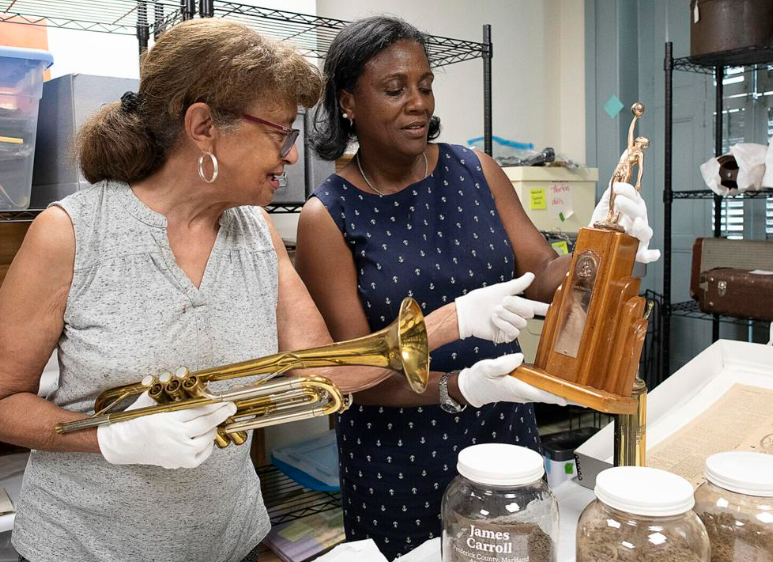
AARCH Society In the News
August 9, 2023The Frederick News Post recently featured the African American Resources Cultural and Heritage Society in an article on $10 million for Maryland projects recently approved by the U.S. Senate’s Appropriations Committee. If approved, AARCH Society will receive $162,000 in grant funds that will be put toward digitizing and preserving its archival collections in preparation for the opening of Frederick’s African American Heritage Society. Read the News Post feature here.

Sen. Ron Young, Sharon Isaacs Join Board
August 9, 2023We are excited to share the addition of two new members to the AARCH Society Board of Directors.
 Former State Senator Ronald Young, Jr., began his career as a social studies teacher in Frederick County, and in 1969 was elected to the Frederick City Board of Alderman. In 1973, he was elected Mayor of Frederick, and won three consecutive re-elections in 1977, 1981 and 1985. In 2010, Young was elected to the Maryland State Senate, and served in that role for 12 years before retiring in 2022. He is an avid historian and Frederick County advocate, serving as a positive force in Frederick’s economic and cultural growth for decades. In Frederick City, he spearheaded the revitalization of Frederick’s historic downtown and the development of the Carroll Creek Linear Park and flood management system.
Former State Senator Ronald Young, Jr., began his career as a social studies teacher in Frederick County, and in 1969 was elected to the Frederick City Board of Alderman. In 1973, he was elected Mayor of Frederick, and won three consecutive re-elections in 1977, 1981 and 1985. In 2010, Young was elected to the Maryland State Senate, and served in that role for 12 years before retiring in 2022. He is an avid historian and Frederick County advocate, serving as a positive force in Frederick’s economic and cultural growth for decades. In Frederick City, he spearheaded the revitalization of Frederick’s historic downtown and the development of the Carroll Creek Linear Park and flood management system.
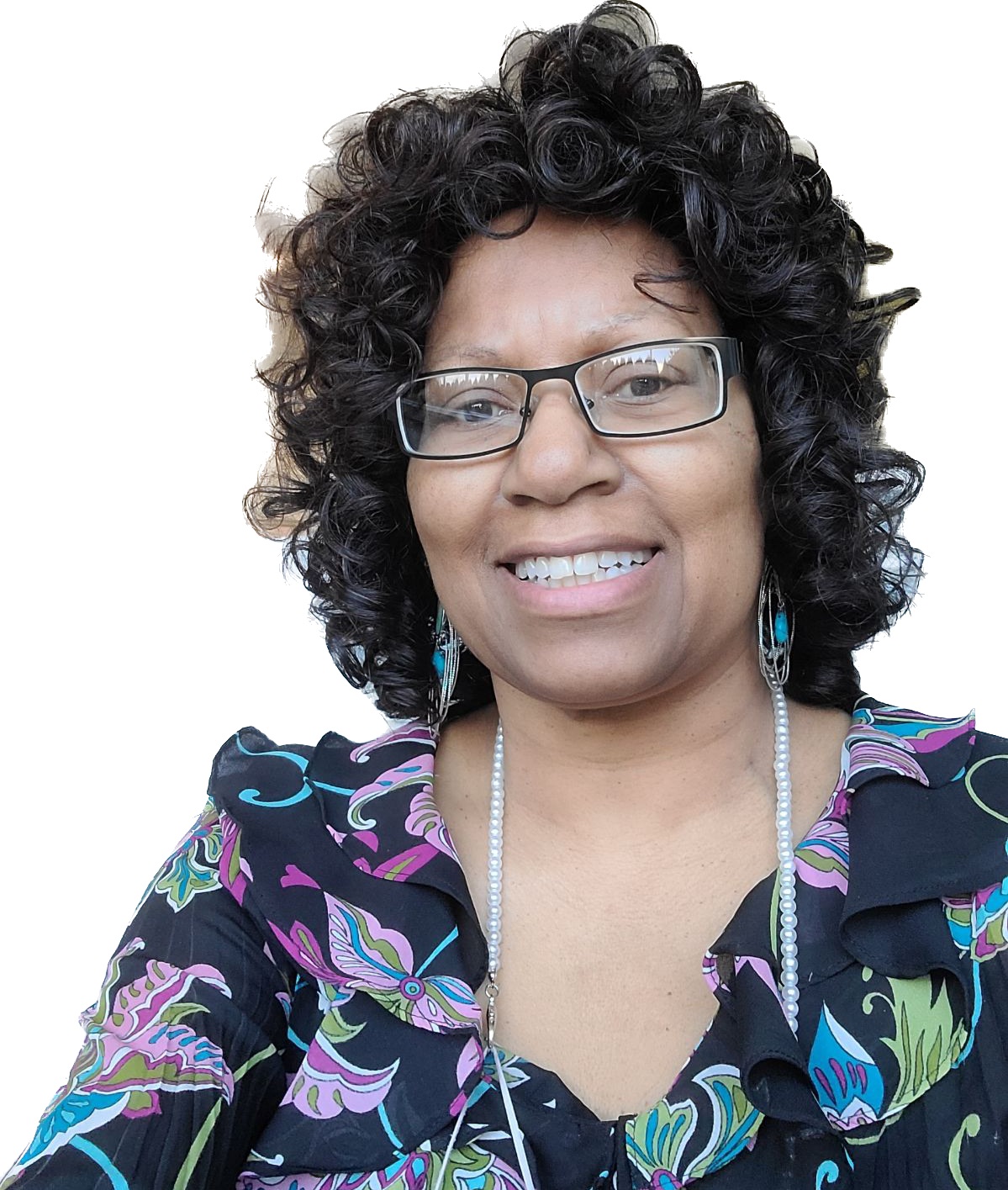 Sharon Isaacs is a retired federal employee who served as a Senior Administrative Officer and Deputy Director with agencies that include the Department of Commerce and the National Oceanic & Atmospheric Agency (NOAA). Her volunteer work over several years has included volunteering as an adult chaperone for the First Missionary Baptist Church Summer Youth Camp, and an IRS-certified volunteer income tax preparer for the AARP & Frederick County United Way Volunteer Income Tax Assistance programs. She recalls her father actively participating in sit-ins to integrate former Frederick businesses such as the Tivoli Theater (now Weinberg Center) and Snow White Grill.
Sharon Isaacs is a retired federal employee who served as a Senior Administrative Officer and Deputy Director with agencies that include the Department of Commerce and the National Oceanic & Atmospheric Agency (NOAA). Her volunteer work over several years has included volunteering as an adult chaperone for the First Missionary Baptist Church Summer Youth Camp, and an IRS-certified volunteer income tax preparer for the AARP & Frederick County United Way Volunteer Income Tax Assistance programs. She recalls her father actively participating in sit-ins to integrate former Frederick businesses such as the Tivoli Theater (now Weinberg Center) and Snow White Grill.
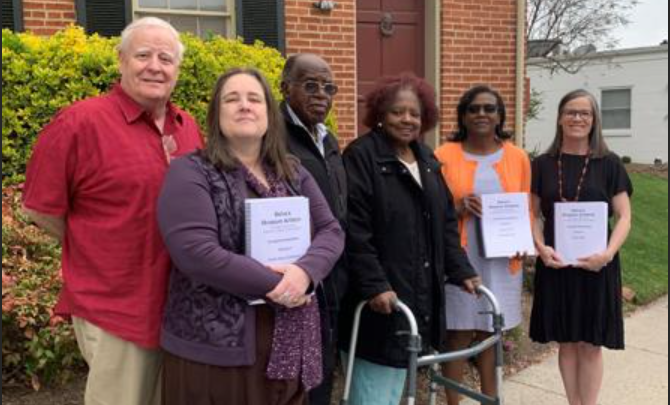
AARCH Society Gains New Artifact
June 20, 2023We are excited to announce that the African American Resources Cultural and Heritage (AARCH) Society is a recipient of a full set of “Belva’s Museum Artifacts,” a seven-volume newsletter highlighting African American history in Frederick, MD. Read the Frederick News Post feature on this new AARCH Society Heritage Center acquisition here. Photo credit: Delaplaine Foundation. Left to right, Rick Simmons, Sir Speedy Printing, Mary Mannix, Frederick County Public Libraries, Seaven Gordon, AARCH Society, Belva King, Protean Gibril, AARCH Society, Blair Wilson, Delaplaine Foundation.

Juneteenth: Honoring the Past Informs Our Future
June 18, 2023A Letter from Our President
Juneteenth holiday. Texas emancipated the enslaved on June 19, 1865, two and a half years after Lincoln’s Emancipation Proclamation, when Union troops arrived in Galveston to let the enslaved know that they were free, starting the nation’s healing. It’s rarely taught. Rethinking our nation’s past helps us understand each other.
After independence, people and systems ensured that Blacks continued to work for plantation owners instead of owning land. Today’s wealth gaps are a result.
Today, several states have deleted American history and anti-racist training from public school curricula at a time when comprehending our past is vital to our future. Juneteenth reminds us that discussing our past strengthens and unifies us. It clarifies current and future difficulties and builds faith and accountability in our systems instead of spreading hostility and blaming.
Policies and investments must be based on historical conditions. Knowledge—not atonement—is accountability.
Accept reality. The Public Health Service and CDC studied hundreds of southern African American men with untreated syphilis from 1932 to 1972 in the Tuskegee Study. 40 years. Syphilis was deliberately infected and left untreated, even after penicillin became available to treat the disease. Cases like the Tuskegee Study, Henrietta Lacks and professional football “race-norming” demonstrate long-term exploitation of Black people that has generated a profound, permanent distrust and disparity in healthcare and science. Juneteenth is a great time to build trust in ourselves and others and exhibit our resilience.
Before the George Floyd tragedy and protests, police officers were frequently found “not guilty” for behaviors that Black people had observed for years in their own communities. Then, those behaviors were caught on film for the world to see.
Law enforcement is just one facet of 400 years of discrimination in healthcare, housing, employment, finance, and education. The 1992 Los Angeles Riots and the Tulsa Massacre, in which a white mob burned down Greenwood, a Black hamlet in Oklahoma, killing hundreds of Black business leaders and displacing thousands, are turning points in our history, across many cities.
Tolerance doesn’t condemn. It investigates how various institutions support repeated negative behavior and proposes ways to eliminate their restrictive residues. Juneteenth shows that studying history may strengthen us by revealing what we can achieve and putting current, often unpleasant realities into perspective.
History can inspire us and provide us with a perspective on contemporary, often harsh situations. It can change the narrative for entire communities.
Juneteenth, like conversations about the Tulsa Massacre and other historical events, unites Americans to resist racism and build a better nation.
Protean Gibril, President
AARCH Society

History of Lynching in Frederick, MD
March 16, 2023In Frederick County, in 1887 and 1895, three African Americans were lynched, one in Point of Rocks in 1879, and two in Frederick. The purpose of this study is not to examine the history and causes of lynching in the United States. There are numerous books, articles, dissertations, websites and other sources that provide an overall context of lynching. Instead, this research documents the history of lynching in Frederick County, Maryland, relying for the most part on contemporary coverage of the event by newspapers. Click here to read the full 2020 report, “The Mob Fairly Howled:” History of Lynching in Frederick County, Maryland, by Dean Herrin.

AARCH Society In the News
March 11, 2023“Examining the Past” in February’s Frederick Magazine highlights some important African American historical spots in Frederick city and county and AARCH Society’s Guided Historic Walking Tours. Read more and sign up for our tour under Programs & Events!
AARCH Society and the Frederick Downtown Partnership recently co-hosted a brainstorming session for a new restoration and public art project underway for the Seventh Street Fountain at the intersection of N. Market and 7th Streets. Learn more in the Frederick News Post here.
